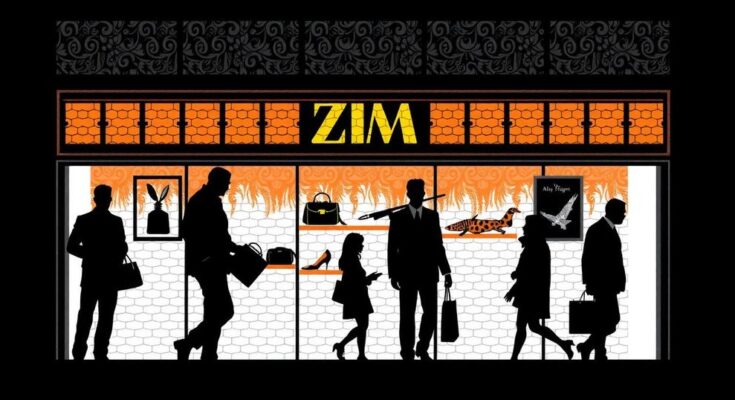Zimbabwean retailers are warning that the official exchange rate for the Zimbabwe Gold (ZiG) is leading them toward financial ruination due to an 80% devaluation in the black market. Formal retailers expressed concerns that the disparity between the official rate and the black market has resulted in price instability and market volatility. The Retailers Association of Zimbabwe is urging the government to let market forces determine the exchange rate to avert further destabilization of the economy.
HARARE – Retailers in Zimbabwe are expressing alarm over the dire consequences of the official exchange rate for the Zimbabwe Gold (ZiG), the nation’s new currency introduced in an attempt to mitigate inflation. Introduced in April 2024, the ZiG has suffered a staggering 80% devaluation in the black market, which has led to significant price instability and the emergence of a dual pricing system. Prominent retailers, including TM Pick n Pay, OK, and Edgars, raised their concerns this week with the Reserve Bank of Zimbabwe (RBZ), highlighting that the current official exchange rate of US$1 to ZiG13.9 – placing the local currency above the South African rand – is increasingly untenable. Representatives from the Retailers Association of Zimbabwe (RAZ) reported that rather than stabilizing the economy, the ZiG has amplified price volatility, further complicating operational challenges for businesses. Suppliers are increasingly pricing goods based on the black market rate, which currently stands at ZiG26 to the US dollar, rather than adhering to the official exchange rate. The retailers articulated their predicament to the RBZ, stating, “Our suppliers face a severe foreign currency shortage and excessive volatility in ZiG exchange rates on the black market, which has now become the basis of their pricing framework.” Despite the illegality of black market trading, it has become the predominant source of foreign currency for numerous enterprises in Zimbabwe. Retailers are now facing the dilemma of either drastically increasing prices to compensate for the discrepancy or risking losses up to 50% if they follow the official rate. In many instances, suppliers establish two pricing structures—one reflecting local currency rates and the other aligning with the substantially higher black market rates. Some retailers have taken the drastic measure of disabling their point-of-sale systems to avoid transacting in ZiG; others experience a decline in customer traffic as consumers opt for informal vendors that do not accept the new currency. The formal retail sector has warned of potential closures should the government fail to provide adequate protection. A notable instance highlighting this issue is Boom washing powder, which wholesalers are selling at a black market-influenced price of ZiG102.45, as opposed to the official price of ZiG47.46. Retailers confront a painful choice: either operate at a loss or increase prices in USD, thereby alienating customers. Mike Ncube, a local trader, echoed the prevailing sentiments surrounding ZiG, drawing parallels to past monetary failures in Zimbabwe. “All the currencies introduced in Zimbabwe with the slashing of zeros and renaming of money have led to one thing—spiraling inflation,” said Ncube. “The government is backing their money with arrogance, not reality.” The RAZ has reiterated its plea for the government to allow market forces to dictate the exchange rate, a recommendation that has been consistent since 2016 with the introduction of the bond note, a currency that similarly failed to maintain its value against the USD. As the formal retail sector continues to struggle with the implications of the ZiG, there are growing fears that, without prompt reforms to the exchange rate system, Zimbabwe’s economy could face further destabilization.
The Zimbabwe Gold (ZiG) was introduced in 2024 as a strategy to control rampant inflation within the country. However, the currency quickly faced significant challenges, facing 80% devaluation in the black market. The disparity between the official exchange rate and black market rates has resulted in severe price instability, affecting retailers who rely on accurate pricing for their goods. Major retail corporations have reported difficulties stemming from a dual pricing system where suppliers use the more favorable black market rates to set prices, threatening the viability of formal businesses.
In conclusion, Zimbabwe’s introduction of the ZiG has not delivered the intended stability but has exacerbated economic challenges for retailers through significant devaluation and price volatility. Retailers are caught between profit margins and customer retention, prompting urgent calls for government intervention to stabilize the currency and allow market-driven exchange rates. Without action, the retail sector faces potential closures, which could further destabilize the already fragile Zimbabwean economy.
Original Source: www.thezimbabwemail.com




